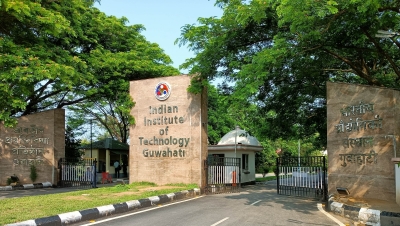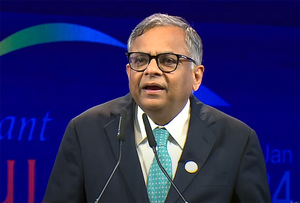Guwahati, Sep 26 (IANS) Scientists at the Indian Institute of Technology Guwahati have developed a new method using rice husk to separate oil from oil-water mixture, a finding that could mitigate environmental hazards like biomass burning and marine oil spills.
Over the years, oil spills due to industrial discharge, or accidental mishap cause irreversible damage to the aquatic ecosystems and conventional cleaning techniques such as skimming, or in-situ burning is ineffective, costly and causes additional pollution.
The team developed a silica nanoparticles-coated cotton fabric by utilising rice husk, an agricultural waste.
The research, published in the international journal ‘Biomass and Bioenergy’, aims to convert large-scale agricultural waste into a sustainable value-added product to mitigate marine oil pollution.
“Our technology has multiple beneficial effects on the environment. Rice husk is an agricultural byproduct, rich in silica that is generated in millions of tonnes every year. It generally ends up being burnt unscientifically causing air pollution," said Vaibhav V Goud, Professor, Department of Chemical Engineering, at IIT Guwahati.
"With our technique this waste rice husk is converted to 3D sorbents that mitigates oil contamination by following a selective active-filtration process," he added.
In this process, the rice husk is gradually heated and efficiently converted to charcoal also known as bio-char. Subsequently, this bio-char is subjected to further heating to transform it to silica nanoparticles.
The size of these nanoparticles can be customised by adjusting the pH of the bio-char. To render the nanoparticles water-repellent, they are treated with special chemicals known as silanes.
Finally these treated nanoparticles are coated over a cotton material creating a natural, three-dimensional sorbent for separating oil-water mixture.
The study can aid in development of economical, sustainable platforms for separating oil/water mixtures or harmful components from aqueous/non-aqueous mixture.
“Our experiments demonstrated that the coated cotton fabric particularly adsorbed oil, while the uncoated sample adsorbed both oil and water. The developed superhydrophobic material has shown a remarkable 98 per cent efficiency and retained its functionality even after repeated use and exposure to harsh environments,” said Professor Goud.
--IANS
ya/rvt/rad











